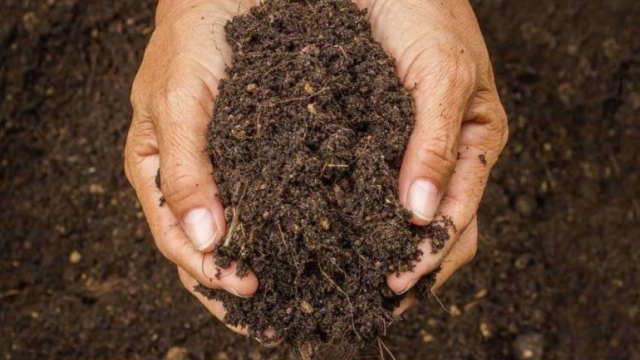As we become more mindful of the impact our choices have on the environment, the demand for organic and sustainable solutions continues to rise. One area that has seen tremendous growth is the realm of organic soils and fertilizers. These natural alternatives provide a greener approach to cultivating healthy and vibrant plant life, avoiding the detrimental effects of synthetic chemicals. By harnessing the power of nature, organic soils and fertilizers unlock the secrets to a more sustainable and fruitful future.
At the heart of organic gardening lies the soil. Organic soils are enriched with essential nutrients and beneficial microorganisms that promote optimal plant growth. Unlike conventional soils that may be laden with chemical residues or lacking in vital elements, organic soils offer a balanced and nurturing environment for plants to thrive in. Rich in organic matter, such as compost and decomposed plant materials, these soils improve soil structure, moisture retention, and nutrient absorption. The result is healthier plants that are more resilient to pests and diseases while contributing to the overall health of the ecosystem.
While organic soils lay the foundation for sustainable growth, organic fertilizers provide the necessary nutrients to support plant development and productivity. Derived from natural sources, such as plant and animal materials, these fertilizers avoid the use of synthetic compounds that can harm the environment and human health. From well-aged compost to seaweed extracts and bone meal, organic fertilizers offer a wide range of options, each with unique benefits for specific plant needs. By nourishing the soil while feeding the plants, organic fertilizers contribute to the long-term vitality of the ecosystem and ensure a healthier, chemical-free harvest.
In conclusion, the secrets of organic soils and fertilizers lie in their ability to harness the power of nature to create a thriving and sustainable environment for plants. By opting for organic alternatives, we not only safeguard the health of our gardens but also contribute to the larger goal of preserving our planet. From promoting biodiversity to reducing pollution, organic soils and fertilizers offer a greener path towards nourishing our plants while protecting our natural resources for generations to come. So, let’s embrace these secrets and bring a touch of green to our gardens and beyond.
Benefits of Organic Soils and Fertilizers
Organic soils and fertilizers offer a range of benefits that contribute to a healthier and more sustainable environment. By opting for organic solutions, we can nourish our plants while minimizing negative impacts on the ecosystem.
-
Enhanced Soil Fertility:
Organic soils and fertilizers provide a natural way to enrich the fertility of the soil. They are typically derived from plant or animal sources, such as compost, manure, or decaying organic matter. These organic materials help to improve soil structure, enhance nutrient availability, and promote the growth of beneficial microbes. As a result, plants grown in organic soils receive a well-rounded supply of essential nutrients, leading to healthier and more vigorous growth. -
Reduced Environmental Impact:
An important advantage of organic soils and fertilizers is their minimal impact on the environment. Unlike their synthetic counterparts, organic alternatives do not contain harmful chemicals or synthetic additives that can leach into the soil and waterways. By using organic options, we can mitigate the risk of pollution and protect the delicate balance of our ecosystems. Additionally, the use of organic fertilizers contributes to the reduction of greenhouse gas emissions, further aiding in the fight against climate change. -
Long-Term Sustainability:
Organic soils and fertilizers promote long-term sustainability in agriculture. The organic approach emphasizes the use of renewable resources and the conservation of natural processes. By adopting this method, we can reduce our dependence on non-renewable resources, such as fossil fuels, which are typically used in the production of synthetic fertilizers. Moreover, organic practices encourage the development of healthy soil ecosystems, reducing the need for constant external inputs and fostering a more self-sustaining agricultural system.
In summary, organic soils and fertilizers offer a multitude of benefits, from improving soil fertility and reducing environmental impact to promoting long-term sustainability. By embracing organic solutions, we can work towards a greener and more responsible approach to cultivating our lands.
How to Create and Maintain Organic Soil
Creating and maintaining organic soil is essential for successful gardening and sustainable agriculture. By following these simple steps, you can improve the health of your soil and promote the growth of thriving, natural crops.
-
Start with the Basics: To create organic soil, it’s important to begin with a solid foundation. Begin by choosing a location that receives adequate sunlight and has good drainage. Remove any weeds or grass from the area and loosen the soil using a garden fork or shovel.
-
Add Organic Matter: Organic matter is the key to building healthy soil. Incorporate compost, leaf mold, or well-rotted manure into the soil to enrich its fertility. These organic materials provide essential nutrients and improve soil structure, allowing for better water retention and aeration. Spread a layer of organic matter over the soil surface and mix it in thoroughly using a garden rake or hoe.
-
Mulch and Rotate: After preparing the soil, it’s important to protect it from erosion, moisture loss, and weed growth. Mulching with organic materials such as straw, wood chips, or shredded leaves helps to maintain soil temperature and moisture levels, while also suppressing weeds. Additionally, practicing crop rotation can prevent nutrient depletion and soil-borne diseases, as different plants have varying nutrient requirements.
By following these steps and continually enriching your soil with organic matter, you can create a sustainable and productive gardening environment. Organic soil provides a fertile foundation for healthy crops, promoting biodiversity and preserving the long-term health of our planet.
Choosing the Right Organic Fertilizer
When it comes to organic gardening, selecting the appropriate organic fertilizer can make a significant difference in the health and productivity of your plants. With numerous options available, it’s crucial to choose wisely. Consider the particular needs of your plants, the soil composition, and the overall sustainability of the fertilizer you select.
-
Understanding Your Plant’s Needs
Different plants have different nutrient requirements. Before selecting an organic fertilizer, it’s essential to assess the specific needs of your plants. Some plants thrive in nitrogen-rich environments, while others may require more phosphorus or potassium. By understanding the nutrient preferences of your plants, you can make an informed decision while choosing the right organic fertilizer. -
Evaluating Soil Composition
The quality of your soil plays a vital role in plant growth. Conducting a soil test can provide valuable insights into its composition. By analyzing the nutrient deficiencies or imbalances in your soil, you can identify which organic fertilizers will best address these issues. For example, if a soil test reveals a low nitrogen content, choosing an organic fertilizer high in nitrogen can help restore the nutrient balance. -
Considering Sustainability Factors
Opting for organic fertilizers aligns with environmentally-friendly and sustainable gardening practices. However, not all organic fertilizers are created equal. Some may be produced using sustainable methods, while others may have a higher carbon footprint. Look for certifications such as "OMRI Listed" or "USDA Organic" to ensure you are selecting a fertilizer that meets strict organic standards and reduces harm to the environment.

By taking into account your plant’s nutrient requirements, evaluating soil composition, and considering sustainability factors, you can make an informed decision while choosing the right organic fertilizer. Creating a harmonious relationship between your plants and their nutrient source will contribute to healthier, more thriving gardens.






